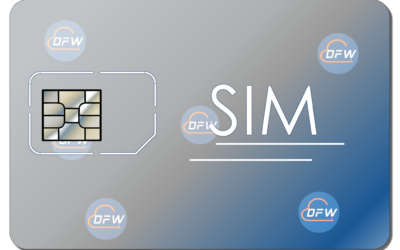SIP and VoIP are two of the most commonly used terms regarding IP telephony. However, many people are not aware that they are not the same thing. Session Initiation Protocol it’s a signaling protocol used to initiate, maintain, and terminate multimedia communication sessions such as voice and video calls over the Internet.
So let’s get started. Let’s start by explaining what protocol means —followed by an explanation of Voice Over Internet Protocol (VoIP)—followed by an explanation of what Session Initiations Protocol is—backed up by some examples of deployments to help you see the difference and then explain the differences between the two, and finally, why we should think about using the service. last but not least, a recap how our post here today.
Explanation of What Protocol Means
A protocol is a system of digital rules for message exchange within or between computers, phones, or other digital devices. A protocol defines the syntax, semantics, and synchronization of communication. Protocols must be agreed upon and used by the developers of each connected device or application (often called endpoints) to be effective. For one device to communicate with another, developers must use well-defined formats for exchanging messages. For this reason, protocols tend to evolve into industry standards, making it easy for multiple vendors to create endpoints that can communicate with each other.
WHAT IS Session Initiation Protocol
The first point to consider about Session Initiation Protocol is its widely-used communications protocol that allows multimedia sessions such as video and phone calls. Session Initiation protocol -used to enable Voice over Internet, a key takeaway that distinguishes between SIP and VoIP. This protocol defines the messages transmitted between endpoints, including their establishment, termination, and other essential elements. In addition to voice calls, – applications may include video conferencing, instant messaging, media distribution, and other purposes. SIP is designed and standardized through the auspices of the Internet Engineering Task Force (IETF).
The Difference Between the Two
Voice over Internet Protocol, also called VoIP, is a type of technology that transmits voice over the Internet. Session Initiation Protocol establishes and terminates VoIP calls and sends multimedia over the Internet.
Some Examples of Deployments of VoIP
These three types of VoIP services will enhance your communication experience.
- Computer-to-Computer
- Computer-to-Phone
- Phone-to-Phone
VoIP services offer businesses more flexibility and options than ever. From a business level, VoIP puts the Legacy PBX to bed regarding Fte and Management and overall OpEX vs. CapEx. Click on the link to view my chart on “Rolling Heat Impact Points”. The diagram should provide you enough incentive to least look at the switch if the price of POTs lines doesn’t get you first. Reach out to me if you want to know what you can expect to pay in the future for O
Conversely, Implementing VoIP for your business provides several flexibilities, and you can communicate how you want. As a user, you can connect with others on various levels via the Internet, There are a lot of remote workers these days, and as long as you are on a stable network with the appropriate bandwidth, you should have no issues.
Session Initiation Deployments
Session Initiation Protocol is the process of signaling and controlling interactive communication sessions. This includes voice, video, chat, and instant messaging, which you find in Unified Communications-as-a-Service or UCaaS, interactive games, and virtual reality.
There is A Relationship needed between the two services
While Session Initiation protocol is an industry-standard method that enables VoIP. VoIP can improve communication and reduce costs for businesses considering different ways of deploying the service, including trunking and choosing the most significant benefits. Thanks for reading.

Drew Stephens is a tenured IT professional who has worked with many technologies. He holds a B.S in Computer Science and has certifications in Network Infrastructure, Administration, Voice, Cloud Stacks, and platforms, including Azure and Google Cloud. He also has fluency in Director Level Sales in FinTech, Healthcare, and Retail.





0 Comments